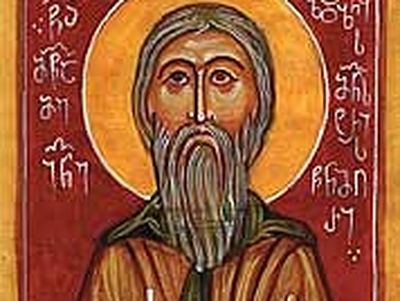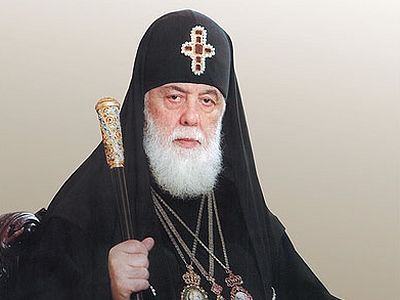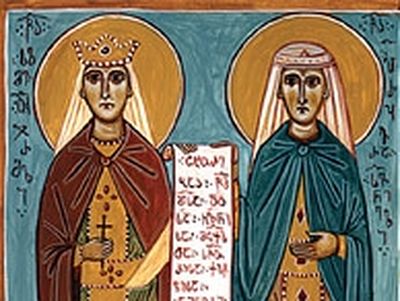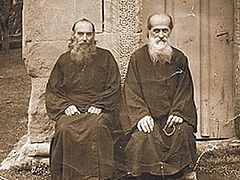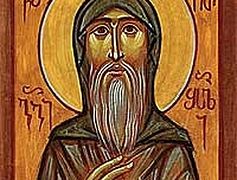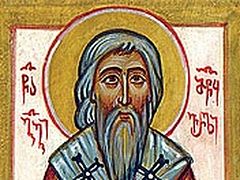Memory 19 December (1 January)
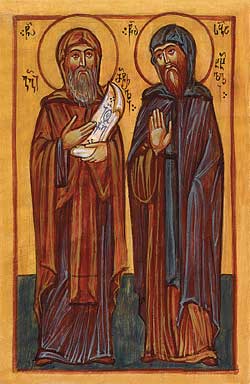
The holy fathers were filled with divine grace. The elder brother, Giorgi, was a spiritual adviser in the court of King Bagrat III Kuropalates and, along with the king, he became an active participant in the production of ecclesiastical literature.[1] The younger brother, Saba, is remembered as a righteous and blameless man by the renowned Church figure Giorgi the Lesser. According to Giorgi the Lesser, the brothers were generously endowed with both spiritual blessings and material wealth.
When the holy fathers heard about the piety of their nephew, the young Giorgi (later of the Holy Mountain), they suggested that Iakob bring him to them in Khakhuli in Klarjeti. With exceeding gladness Iakob brought his son to the God-fearing brothers.
At that time a certain Peris Jojikisdze, a nobleman married to the daughter of King Bagrat III, governed the village of Tvartsatapi. Peris thought it wise to invite an intelligent and experienced monk to his palace to serve as an instructor and spiritual guide, and he selected St. Giorgi to fill this role. With great reluctance the venerable father consented, and he was entrusted with responsibility for all the spiritual and earthly affairs at the palace.
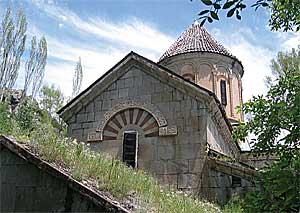 Khakhuli Monastery Khakhuli Monastery |
| Khakhuli Monastery |
Giorgi of Khakhuli took the young Giorgi with him to the palace of Peris Jojikisdze. A year later, the Byzantine Emperor Basil II brought false accusations against Peris and ordered his execution. His wife and those in his court, among whom were St. Giorgi and the young Giorgi of the Holy Mountain, were captured and escorted to Constantinople.
After twelve years in Byzantium, the captives were finally permitted to return home. Upon his return to Georgia, Giorgi of Khakhuli sent his nephew to Khakhuli Monastery, entrusting him to the care of his brother Saba.
The holy fathers reposed peacefully in the mid-11th century. Truly you labored as a single soul in flesh and spirit. O Holy Brothers Giorgi and Saba, pray to God for us!
[1] This period is known as the Golden Age of Georgian Letters, when many translations and copies of ecclesiastical writings were made.

